Beyond SDI: Integrating Scientists, Policy Makers and Citizens to Create and Monitor Environmental Policies
The efficient organization of information about the environment presents great challenges for information science and technology. There is a diversity of environmental conditions around the globe and a multiplicity of actors, with points of view ranging from the political to the scientific to the common citizen. Currently, the combination of technologies, people, and policies that defines spatial data infrastructures (SDI) is probably the best approximation we have in that direction. However, some elements are missing from the SDI general schema. SDI is noteworthy for its interoperability potential. Interoperability allows joining several different data-?providing organizations, without interfering with their technological choices, production processes, or internal culture. In fact, providing interoperable access to data is only a first step for SDI and there are initiatives towards creating information services. However, several limitations come to mind as we think about the next step, i.e., on how the wide availability of spatial data and information can actually make a difference for complex problem-?solving situations, involving multiple actors, with different (and often conflicting) world views. Therefore, even though the current framework for SDI technology, based mostly on OGC standardized components and Web services, represents a departure from the days of offline data exchange, there is much more to be done. There is a definite call for more interaction, to support cooperation, discussions, and community building. People must be motivated to contribute and to participate, and better tools for data discovery must be developed, especially considering semantic aspects, since interdisciplinarity is a necessity. We need to take into consideration three actors (citizens, scientists and policy makers) and learn how they are expected to interact towards the creation of environmental policies that will lead to a sustainable planet. This proposal explores ways to go beyond the traditional spatial data infrastructures (SDI), with the objective of making environmental policies accessible to a variety of actors. Environmental policymaking has to take into account that phenomena occur and are modeled in various levels of expertise and with different objectives. There are also multiple and sometimes conflicting views on the same reality, including the many scientific disciplines, governmental and non-?governmental views, and the view of the local populations. Among the challenges in making this happen, we opted to address the difficulties involved in extracting enough detailed domain knowledge from experts to enable the sharing of information with non-?experts. Although current forms of formal, computational ontology are very helpful as a means of achieving the final goal of semantic integration, domain experts do not typically conceptualize in such a formal and structured way. Hence there is often a significant and complex gap between the concepts and relationships that experts might discuss, write about or draw (e.g. in concept maps) and the required formal ontologies that are logically consistent, strongly typed and constrained in various ways. This proposal directly addresses the problems associated with integrating informal and formal domain knowledge, and in migrating the largely informal (in an ontological sense) knowledge of domain experts into formal, computable ontologies. Informal knowledge is treated here as a view onto the formal structure, and different views onto formal knowledge are used to support the perspectives of experts from different domains. The recording of informal ontologies will also have a positive impact in sharing expert knowledge (from scientists) with common citizens and policy makers. If formal ontologies are difficult to handle for scientists, they make even less sense for non-?experts. This way we can go beyond SDI to integrate science and communities in the effort of creating, enforcing, assessing, and revising environmental policies. Our proposed research will enable the bridging different levels of domain expertise and formality as a first step for citizens, policy makers and scientists to have a forum for discussion, understanding, creation and monitoring of environmental policies.
